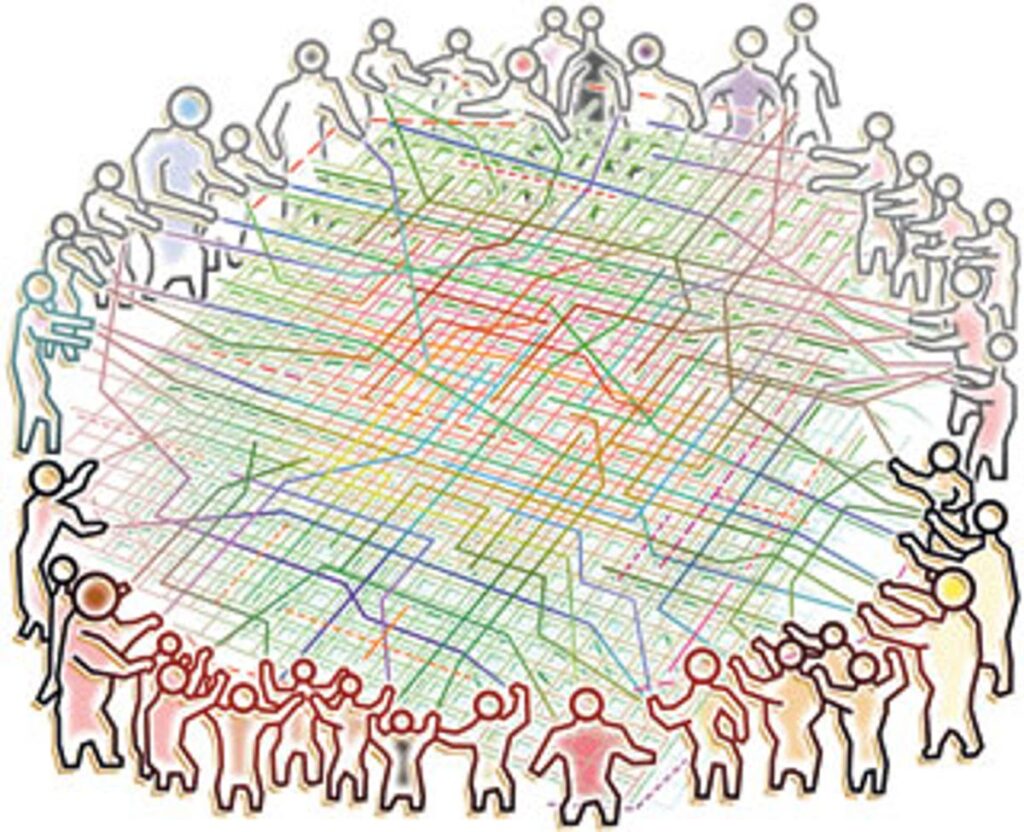Welcome to Good Market Info!
Click the logo to go to the directory & marketplace
Welcome to Good Market Info! Click the logo to go to the directory and marketplace
Good Market Info > About > Marketplace Commons
Commons are resources that groups of people hold in common, self-govern according to agreed rules, and manage for individual and collective benefit.
Good Market serves as a marketplace commons for the new economy movement. The curation process and digital infrastructure are shared resources that are governed by the community that uses them.
For decades, mainstream economists argued that common resources are inevitably depleted or exploited. They claimed the only options were privatization, letting a private owner manage a resource, or nationalization, letting the state manage through top-down regulation.

Elinor Ostrom won the Nobel Prize in Economics for showing an alternative. She studied traditional communities that have successfully and sustainably managed natural resource commons, like forests, fields, grazing lands, irrigation systems, and fisheries, and found they shared design principles.
The principles for self-governing and sustaining a commons are also evident in modern digital commons like Wikipedia, free and open source software projects, and Good Market. Learn more under Community Rules.
Because the word “market” is often used as shorthand for exchange between profit-maximizing private enterprise, the idea of a marketplace commons can seem counterintuitive.
It’s helpful to remember that marketplaces are social institutions. We humans make the rules, and the rules can change over time. How we choose to exchange with each other is a reflection of our values and our priorities.
For participants in the new economy movement, a marketplace commons can help catalyze the transition to an economic system that is inclusive, equitable, and regenerative.
The new economy movement is highly diverse. Participants are using different language, testing different approaches, and trying to find solutions to local and sector-specific issues.
This creativity and diversity is important for the evolution of a resilient new system, but it means the full scale of the movement is not visible. When there are hundreds of different certifications, networks, and marketplaces, they can appear siloed.
A marketplace commons enables participants in the new economy (including existing certifications, networks, and marketplaces) to come together and increase the visibility of their own work and the broader movement. This makes it easier to find each other across traditional divides, and it makes it easier for new people to get involved.
Traditionally, marketplaces in villages and towns were a space for ongoing relationships. One-off transactions would have been rare. Ongoing relationships build trust and enable new forms of partnership and collaboration.
A marketplace commons with clear curation standards and boundaries can create a sense of community and support trust and relationships within the new economy movement. It can make it easier for people to share information, trade, partner, and collaborate.
Private online marketplaces tend to prioritize profit-generating transactions. They try to minimize direct connection between users because they want all transactions to happen within the marketplace platform.
Operating as a marketplace commons opens up new opportunities for exchange. It makes it possible to include initiatives that freely share information, focus on voluntary action, or are testing gift economy or mutual aid approaches. It also makes it possible to support integrations and off-platform connections that benefit the community.
In order to fully transition to a new economic system, we need to change policies at every level. A bounded marketplace commons provides space to test new standards and rules and demonstrate that they work. It makes it easier to identify ecosystem gaps (financial services, for example) and find creative ways to fill them.
As new standards and approaches are tested and demonstrated, it becomes easier to mainstream a new economic story and change system level rules.